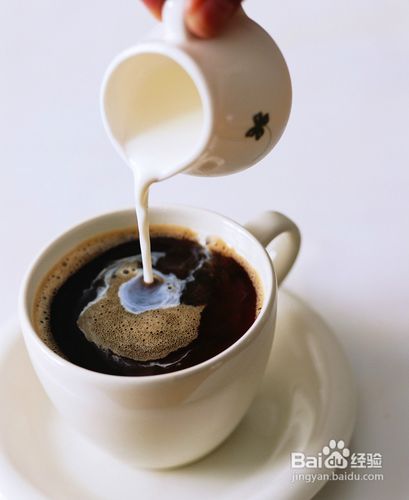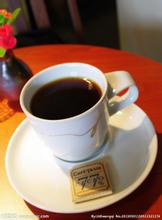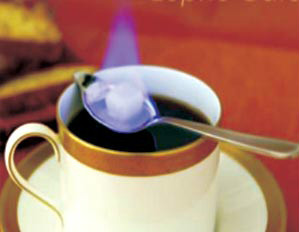Full-bodied Jamaican Coffee Atlanta Manor Coffee Flavor and taste introduction to the characteristics of the manor producing area
Jamaica is a tiny coffee grower, accounting for only 0.02 per cent of the world market, with 85 per cent of its exports to Japan.
Among them, the leading role is the Jamaican Coffee Industry Association (Coffee Industry Board, referred to as CIB), which was established in 1948 to promote the development of the Jamaican coffee industry, improve the income of coffee farmers, protect the quality of Jamaican coffee, and sell Jamaican coffee around the world.
In order to ensure the quality of Blue Mountain Coffee, CIB has made a series of specifications:
1. Clearly define the production area
two。 Choose to plant Arabica tin card varieties
3. Training coffee farmers (planting techniques, harvest handling techniques, environmental protection, etc.)
4. Improve coffee processing skills (insist on picking by hand, picking only fully ripe red fruits; use water washing; control drying conditions so that the target moisture content of coffee beans is 12%)
Since 1953, CIB has classified coffee grown in this region as Blue Mountain Coffee according to its special origin. By 1980, Jamaican Blue Mountain Coffee had become so famous that some British and American retailers labeled it as "Blue Mountain Coffee" on non-Jamaican coffee. To this end, CIB specially designed a label that can only be affixed to 100% Jamaican Blue Mountain Coffee in 1984-1985. Some small estates of Logo, which also has Jamaican Alpine Coffee and preferred Coffee, also grow Blue Mountain Coffee, such as Wallenford Manor (Wallenford Estate), Silver Mountain Manor (Silver Hill Estate) and Atlanta Estate Manor (J.Martinez). Even the largest landowners in the region are small-scale growers by international standards, many of whom are small landowners whose families have been working on the land for two centuries. The coffee industry in Jamaica faces a series of problems, such as the impact of hurricanes, the increase in labor costs and the difficulty of mechanizing terraces. It is difficult to rationalize planting on many small estates and farms.
However, Blue Mountain Coffee is one of those coffee retailers that value credibility to stock some coffee no matter what. A leading British retailer said: regardless of the price, he will continue to sell Blue Mountain coffee all year round because he has many customers who only recognize "Blue Mountain".
Now, 90% of the post-harvest Blue Mountain coffee is bought by the Japanese. In 1992, Jamaica sold 688 tons of Blue Mountain coffee to Japan, 75 tons to the United States and 59 tons to Britain. Now that the rest of the world can only get 10% of the output of Blue Mountain coffee, regardless of the price, blue mountain coffee is always in short supply. In the UK, Langford Brothers Brothers has been the only supplier for many years. Later, the Edmunds Group (Edmonds Group) also received supplies from Jamaica's Salda Food Company (Salda Foods).
Langford Brothers Brothers is a licensed Jamaican Blue Mountain Coffee brand.
The difference in transportation between Blue Mountain Coffee and other coffee is that it is transported in barrels with a capacity of 70 kilograms, a replica of Bonifieur barrels produced in Guadeloupe in the last century. The barrel was originally used to carry flour shipped from the United Kingdom to Jamaica, usually with a trademark and the name of the manufacturer. The Coffee Industry Committee issues certificates for all authentic Jamaican coffee and bears a stamp of approval before export.

Important Notice :
前街咖啡 FrontStreet Coffee has moved to new addredd:
FrontStreet Coffee Address: 315,Donghua East Road,GuangZhou
Tel:020 38364473
- Prev

Introduction to the characteristics of St. Pei's Coffee Bean Flavor Manor, which ranks among the world's famous brands.
Dora, Puerto Rico, coffee is the best in the world. Puerto Rico coffee is generally carefully cultivated, pure, fragrant, granular, among which the best is among the world's famous brands. Doradot is the best, with a strong flavor and a long aftertaste, and its aroma is comparable to that of any coffee variety. Puerto Rico was originally inhabited by Indians and went to America for the second time by Columbus.
- Next

Introduction to the flavor and taste of the Blue Mountain Coffee Manor of Jamaica Fine Coffee
In 1717 King Louis XV of France ordered coffee to be grown in Jamaica, and in the mid-1920 s, the Governor of Jamaica, Nicholas. Nicholas Lawes imported Arabica seeds from Martinique and began to plant them in St. Andrew. To this day, the St. Andrews area is still the Jamaican Blue Mountain Coffee.
Related
- Does Rose Summer choose Blue, Green or Red? Detailed explanation of Rose Summer Coffee plots and Classification in Panamanian Jade Manor
- What is the difference between the origin, producing area, processing plant, cooperative and manor of coffee beans?
- How fine does the espresso powder fit? how to grind the espresso?
- Sca coffee roasting degree color card coffee roasting degree 8 roasting color values what do you mean?
- The practice of lattes: how to make lattes at home
- Introduction to Indonesian Fine Coffee beans-- Java Coffee producing area of Indonesian Arabica Coffee
- How much will the flavor of light and medium roasted rose summer be expressed? What baking level is rose summer suitable for?
- Introduction to the characteristics of washing, sun-drying or wet-planing coffee commonly used in Mantenin, Indonesia
- Price characteristics of Arabica Coffee Bean Starbucks introduction to Manning Coffee Bean Taste producing area Variety Manor
- What is the authentic Yega flavor? What are the flavor characteristics of the really excellent Yejasuffi coffee beans?

